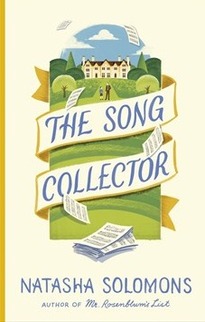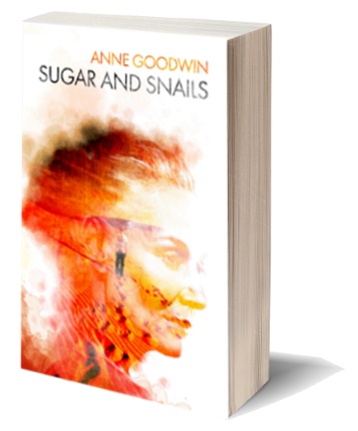| The celebrated composer Harry Fox-Talbot, or Fox to his friends, is grieving for his wife, Edie, a singer who rose to prominence cheering the troops during the Second World War. He’s lost interest in music until, quite by chance, his grandson, Robin, discovers the piano. The four-year-old turns out to be a musical prodigy and, by nurturing his development, Fox gradually re-engages with life. |
When Edie arrives at Hartgrove, it’s on eldest brother Jack’s arm and, although she forges a friendship with Fox through music, it looks unlikely that this friendship will lead to marriage. So of course we read on, eager to discover exactly how Fox manages to win her and how, despite his inauspicious origins, music becomes his life.
The Song Collector is an engaging family saga about love, loss and betrayal, and attachment to land. It’s about the allure of fame and celebrity, and the transformational power of music. Natasha Solomons’ unshowy writing (although I did find some of her similes unnecessary) is effective in pulling the reader into the story, including the beautiful sentence (p240):
Sal sings of her disappointment at not being a great singer, and somehow becomes a better one.
As usual, I received my copy of this novel from the publisher, in this case Sceptre Books – thanks to them.
On reading this novel, I was struck by how I was more aware of song collecting in the Appalachian Mountains than in my own country, even though a teenage acquaintance with folk music had exposed me to a fair few regional songs. So it’s good to see that Natasha is in the process of putting together a map of contemporary Britain in song. But I had to go to YouTube to find D’Ye Ken John Peel? from where I grew up (although the hunting life it celebrates is a long way from my formative experiences). There are a lot of regional songs pertaining to the area where my debut novel, Sugar and Snails, is set some of which, like Cushie Butterfield, and The Waters of Tyne, have had mentions in other posts. But The Lambton Worm has been in my head these past few days after hearing Sarah Hindmarsh read eloquently from her short story based on the poem at the launch of a new anthology from Mother’s Milk Books (which I hope to review later).
| | |
Well-written fiction should be able to transform any kind of story into an adventure that keeps the reader turning the page. Writing can be an adventure too as, in discovering the story of our characters, we might also learn about ourselves. Then, if we’re lucky, comes the adventure of publication (perhaps even more of an adventure if it's with a small press) and the slightly different adventure of marketing with its sometimes surprising ups and downs. Right now I’m excited at the prospect of my first TV interview for a Liverpool-based channel that actually has a designated books slot. As a shrinking violet, I’m terrified of making a fool of myself (and hope I won’t be too embarrassed to share it when it’s broadcast) but I’m determined to take the plunge.
The plot of debut novel, Sugar and Snails, centres around whether the main character, Diana, will manage to take a trip to Cairo when Simon goes out there to work. But several things stand in the way of such a journey, including the life-changing adventure that took her there thirty years before. This week’s flash précis some scenes in Chapter 8 when she looks back on her adolescent self, on the brink of a momentous event that couldn’t be spoken about.
| Cairo adventure The postman scrutinised the frank on the envelope. “Off to see the pyramids?” I shrugged. Even if I was right about its contents, I couldn’t tell him. I left the packet on the mantelpiece till Dad returned from work. The passports were on the table when I set down the plates of stew. “I never go anywhere,” complained my brother. Dad told him to shut it and eat his tea. I couldn’t ask whether we were really going, or why or when. But he must have got us visas for a reason and I could always dream. |























 RSS Feed
RSS Feed





















